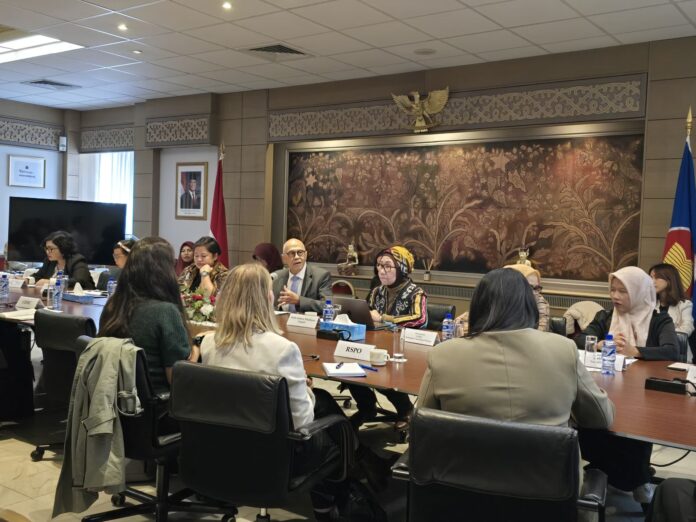Ecobiz.asia – Women farmers from across Indonesia urged the European Union to ensure its new deforestation law (EUDR) does not shut smallholders out of global supply chains, warning that thousands risk losing market access over complex data and certification requirements.
Speaking at a multi-stakeholder meeting hosted by Indonesia’s embassy in Brussels, Monday (Sept 15, 2025), representatives from cocoa, coffee, palm oil and rubber cooperatives called for technical and financial assistance to comply with the EU rules, which require polygon maps, GPS coordinates and traceability documents.
“We manage our farms with agroforestry systems, but mapping and certification costs are high. Without support, thousands of smallholders could be pushed out,” said Agung Widiastuti, head of the Kerta Semaya Samaniya cocoa cooperative in Bali, which exports premium fermented cocoa to Europe and Japan.
Ayu Antariksa, who leads a 2,400-member cocoa cooperative in South Sulawesi, said the law could wipe out years of progress toward sustainable production. “Complex traceability rules risk making many smallholders unviable,” she said.
Farmers from Papua, Aceh, and West Java voiced similar concerns over coffee, while palm oil producers from Jambi and North Sumatra said certification such as RSPO and ISPO is more than paperwork – it is their livelihood.
“Palm oil is not just a commodity, it pays for food, school fees, health care. If market access is blocked, we will be the first to suffer,” said Umi Syamsiatun from Jambi.
Nurhayati, a palm oil cooperative leader from North Sumatra, warned that farmers could be driven into informal markets. “We fear losing access not because we cut forests, but because we cannot meet digital data demands,” she said.
Diah Suradiredja, a sustainable commodity governance expert, said the EUDR should strengthen smallholder participation instead of excluding them. “The law could be a tool for fairer supply chains, but only if governments and industry invest in mapping, finance and capacity building,” she said.
“Protecting forests is important, but so is protecting the people who care for them. Without smallholders, there is no sustainable supply chain,” she added. ***





